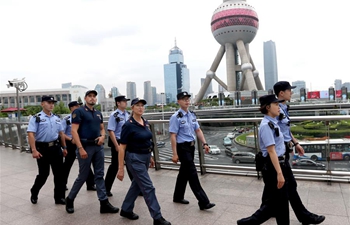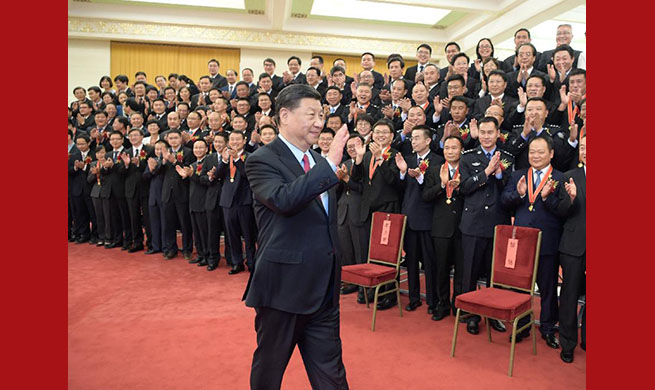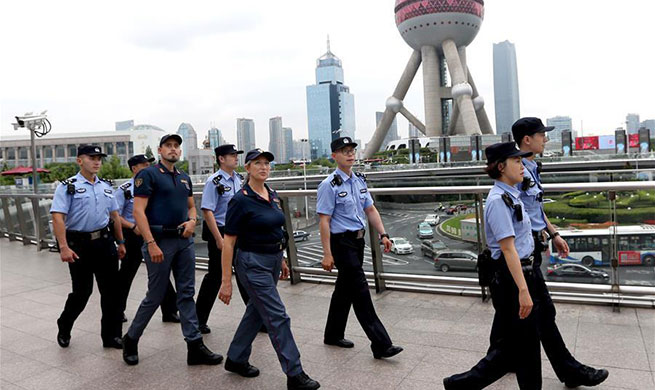UNITED NATIONS, June 26 (Xinhua) -- UN political affairs chief on Wednesday said the Iran nuclear deal must continue to work for all, despite moves by the United States and Iran which have destabilized the hard-won 2015 agreement.
This is especially true at a time when the two countries continue their war of words over recent attacks around the crucial oil shipping lanes of the Gulf, said Under-Secretary-General Rosemary DiCarlo, describing events as "a reminder that we are at a critical juncture."
The Joint Comprehensive Plan of Action (JCPOA), reached between five UN permanent members, plus Germany, and Iran, set out rigorous mechanisms for monitoring limits on Iran's nuclear program, while paving the way for lifting UN sanctions against the country.
With the International Atomic Energy Agency (IAEA) stating in its latest report that Iran is abiding by its commitments, DiCarlo said UN Secretary-General Antonio Guterres was concerned about the U.S. decision in May, not to extend waivers so that Iran can continue trading oil, and other waivers directly relating to the JCPOA.
The United States withdrew from the deal just over a year ago, but some oil buyers were allowed to keep taking limited volumes.
U.S. actions "may impede the ability of Iran and other member states to implement certain of its provisions," said the political affairs chief, adding that the UN chief also regretted Iran's announcement this May, that it would not commit to the agreed limits on enriched uranium, unless other JCPOA signatories agreed to work round the increased U.S. sanctions, within 60 days.
Iran announced last week that it would pass its agreed limits on enriched uranium by June 27.
"Such actions are not in the interests of the participants of the Plan and may not help preserve it," DiCarlo said. "The secretary-general encourages Iran to continue implementing all its nuclear-related commitments despite the considerable challenges it faces."
DiCarlo said the UN chief welcomed initiatives from other countries, including all the Security Council permanent members to save the deal, "which should be given full effect as a matter or priority."
"It is essential that the Plan (JCPOA) continues to work for all its participants, including by delivering tangible economic benefits to the Iranian people," she added.
On May 8, Iran issued a 60-day ultimatum to the remaining parties to the JCPOA to provide Iran with sanctions relief on its oil and financial sectors, failing which it would resume uranium enrichment activities and construction of the Arak nuclear reactor, which would constitute a direct violation of the JCPOA.
This was Iran's response to the U.S. decision to end waivers granting eight countries permission to procure Iran's oil exports, despite previously imposed U.S. sanctions.
















